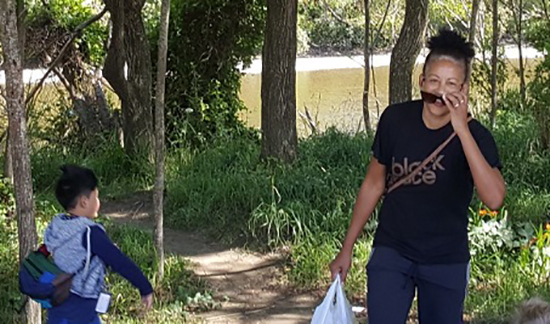
By Craig Major
When School of Social Sciences Associate Professor Camille Nakhid at Auckland University of Technology was asked by the E Tū Whānau Project to assist in a research project to evaluate its domestic violence programme, she didn't hesitate as she was aware of the prevalence of domestic violence among migrant and refugee communities.
Dr Nakhid, who is also chair of the PMC Pacific Media Centre's Advisory Board, recognised that domestic violence impacted on people from a range of cultural and religious backgrounds, and sought the experiences of a diverse group.
She spoke with young African Muslim men and women, and Middle Eastern women based in Auckland as well as a group of Latin American mothers, among others.
"One common thread that was evident was a 'culture of silence' that stopped women in particular from speaking out due to the shame and stigma," Dr Nakhid said.
"There is also the perception for men from migrant and refugee communities that their status is undermined, due to being a minority in New Zealand."
In her research on these issues, Dr Nakhid found that the E Tū Whānau programme's exploration of Kaupapa Māori was beneficial to addressing the issue of domestic violence in these communities.
"Many migrant and refugee communities share similar values to Māori," Camille said. "Māori values of aroha, community and family are very much aligned with Latin American and Muslim communities - much more so than European values."
"Looking at what Māori were doing to address domestic violence in their communities, from a Māori perspective, the E Tū Whānau movement, whose kaupapa is inclusive and quick to embrace refugee and migrant communities was invaluable to the migrant and refugee communities."
"A big part of E Tū Whānau's philosophy is strengths-based. There is a shift in focus from the largely negative messaging associated with domestic violence awareness campaigns, to a more positive one," Dr Nakhid said.
She was recognised for services to ethnic communities and education in the 2018 New Years Honours List, becoming a Member of the New Zealand Order of Merit.
Police encounters with African youth in New Zealand – the impact on the youth, family, and community - Safer Communities
The coping strategies and responses of African youth in New Zealand to their encounters with the police - Journal of Ethnicity in Criminal Justice
Associate Professor Camille Nakhid's profile
This work is licensed under a Creative Commons Attribution-NonCommercial 3




